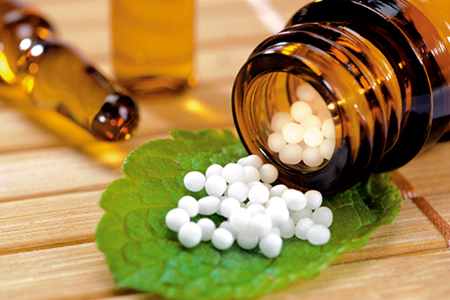|
 Ancient texts cited to foil MNC’s patent bid Ancient texts cited to foil MNC’s patent bid
New Delhi: India has cited ancient texts in foiling an attempt by US-based consumer goods giant Colgate-Palmolive to patent a mouthwash formula containing herb extracts. The texts cited show that the ingredients were traditionally used in ancient medicinal practice.
The company had filed the patent at the European Patent Office (EPO) for “oral compositions containing extracts of ‘Myristica Fragrans’ and related methods”. The application was, however, deemed to be withdrawn in June after India’s premier research body, the Council of Scientific & Industrial Research (CSIR) raised objections.
“The Innovation Protection Unit (IPU) of the CSIR had raised the objection and submitted proof in the form of references from ancient books, which said the herb and its extracts were used for oral disease in Indian Systems of medicine”, said Anjana Baruah, head of the unit.
She told TOI that the IPU detected the claim of the consumer goods giant at the website of the EPO and immediately objected to it by citing references that are there in the “Traditional Knowledge Digital Library” (TKDL) of CSIR. In case of traditional system of medicines or possible instances of bio-piracy, the IPU takes help of the TKDL for verification and submitting evidences.
|
Homeopathic treatments could be beneficial, some call it harmful
|
Some say homeopathic treatments could be beneficial to patients, while some disagree and call it harmful. Although some people say homeopathy is safe and leads to better outcomes when used along with conventional medicine, others say it can be harmful, and it is unethical for doctors to recommend it.
Homeopathy is based on the idea that "like cures like," meaning that diseases can be treated with substances that would produce symptoms in healthy people that are similar to the symptoms of the disease. (Such as deadly nightshade for cold and flu, or poison ivy for rashes.) Supporters of the practice also believe that the substances used in treatments should be diluted, because lower doses of a treatment are actually more potent. But this means that many homeopathic remedies are diluted so much that not a single molecule from the original "active" substance would remain, according to the National Institute of Health. As such, any ideas that homeopathic treatments could actually work to treat sick people "fly in the face of science," said Dr. Edzard Ernst, an emeritus professor at the University of Exeter in the United Kingdom, who studies complementary medicine.Homeopathic products are made from minerals, botanical substances, and several other sources. If the original substance is soluble, one part is diluted with either nine or ninety-nine parts of distilled water and/or alcohol and shaken vigorously; if insoluble, it is finely ground and pulverized in similar proportions with powdered lactose (milk sugar). One part of the diluted medicine is then further diluted, and the process is repeated until the desired concentration is reached. Mr. Peter Fisher, Director of Research at the Royal London Hospital for Integrated Medicine, argues that homeopathic treatments can improve patient outcomes. Mr. Fisher, points to several
|
|
studies that suggest that patients who use homeopathic treatments along with conventional medicine have better outcome than those who don’t. For example, one study with 450 patients who had acute upper respiratory problems, including allergies, found that after two weeks, 82 per cent of homeopathic patients had no symptoms, compared with 68 per cent of patients who used conventional medicine. Other studies have found that patients who use homeopathic treatments tend to use less antibiotics and no steroidal, anti-inflammatory drugs, Mr. Fisher, who also serves as editor in chief of the journal Homeopathy. But Ernst argued that homeopathic treatments can still be harmful if they are used in place of an effective therapy. “Nobody can say how often they have caused actual harm to patients; anecdotally, however, I know of several deaths that have occurred in this unnecessary way,” Ernst said.
“The ultra molecular homeopathic remedy might be harmless, but the same cannot be said for all homeopaths,” he said. The National Institutes of Health also says that there is little evidence to support homeopathy as an effective treatment, and that some products that are labeled as homeopathic can actually contain active ingredients that could cause side effects and drug interactions.

|
|

